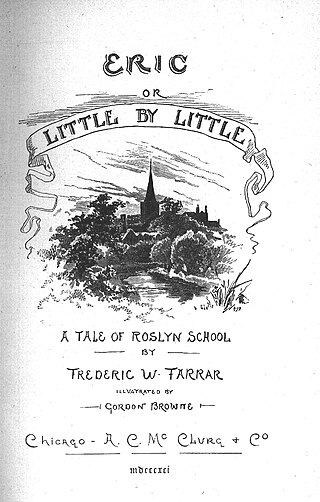Related Research Articles
Holst and von Holst are surnames. In Denmark and Norway they are of Medieval origin, meaning Holsatian. They may refer to:
Neumann is a German surname, with its origins in the pre-7th-century word neowe meaning "new", with mann, meaning man. The English form of the name is Newman. Von Neumann is a variant of the name, and alternative spellings include Neuman, Naumann(s), Numan, Nauman, Neiman, and Nyeman.
Lindström or Lindstrøm is a Scandinavian surname used in the Swedish, Danish and Norwegian languages. In English-speaking countries, the name is commonly spelled as Lindstrom. Notable people with the surname include:

My Uncle Oswald is a 1979 novel in the sex comedy genre written by Roald Dahl.

Agnes is a feminine given name derived from the Greek Ἁγνή Hagnḗ, meaning 'pure' or 'holy'. The name passed to Italian as Agnese, to French as Agnès, to Portuguese as Inês, and to Spanish as Inés. It is also written as Agness. The name is descended from the Proto-Indo-European *h₁yaǵ-, meaning 'to sacrifice; to worship,' from which is also the Vedic term yajña. It is mostly used in Greece and countries that speak Germanic languages.
Arne is a common masculine given name for males in Scandinavia. It is also a surname in England.

The given name Eric, Erich, Erikk, Erik, Erick, or Eirik is derived from the Old Norse name Eiríkr.
Bergman is a surname of German, Swedish, Dutch and Yiddish origin meaning 'mountain man', or sometimes 'miner'.
Brinkman, Brinkmann, Brinckman, and Brinckmann are variations of a German and Dutch surname. It is toponymic surname with the same meaning as the surname Van den Brink: "(man) from the village green". Notable people with these surnames include:
Holt is a surname.
Berg is a surname of North-European origin. In several Germanic languages, the word means "mount", "mountain", or "cliff".
Christiansen is a Danish and Norwegian patronymic surname, literally meaning son of Christian. The spelling variant Kristiansen has identical pronunciation. Christiansen is the sixteenth most common name in Denmark, but is shared by less than 1% of the population.
LarsenDanish pronunciation:[ˈlɑːsn̩], is a Danish-Norwegian patronymic surname, literally meaning "son of Lars". It is the seventh most common surname in Denmark, shared by about 2.4% of the population.
ChristensenDanish pronunciation:[ˈkʰʁestn̩sn̩], is a Danish patronymic surname, literally meaning son of Christen, a sideform of Christian. The spelling variant Kristensen has identical pronunciation. Christensen is the sixth most common name in Denmark, shared by about 2% of the population. In Norway and Sweden the name can also be spelled Christenson or Kristenson.

Arnold is a masculine German, Dutch and English given name. It is composed of the Germanic elements arn "eagle" and wald "power, brightness". The name is first recorded in Francia from about the 7th century, at first often conflated with the name Arnulf, as in the name of bishop Arnulf of Metz, also recorded as Arnoald. Arnulf appears to be the older name, and German (Frankish) Arnold may have originally arisen in c. the 7th century as a corruption of Arnulf, possibly by conflation of similar names such as Hari-wald, Arn-hald, etc.
Lund is a common surname, principally of Danish, Swedish, Norwegian and English origin. As a common noun lund means grove in all North Germanic languages. Lund can be English and can be Scandinavian surname. Also Scandinavian and English surnames can have a particle lund. Lund may refer to:
Holm is a surname which originated in Scandinavia and Britain. Holm is derived from the Old Norse word holmr meaning a small island. Also Norwegian, Swedish, and Danish
Brandt is a Germanic surname and given name.
Ring is a surname of Irish origin, deriving from Ó Rinn. It is also a given name. Notable people with the surname include:
Carina is a female given name. Notable persons with that name include:
References
- ↑ "Dahl". Dictionary of American Family Names. Oxford University Press. 2013.
- ↑ "HeyendaalCat".
- ↑ Axel Gröblinghoff: Großhau - Von altem Eisen und Wäldern bis zum Horizont, Germany 1995